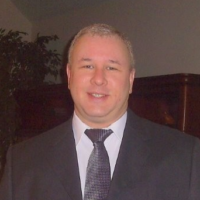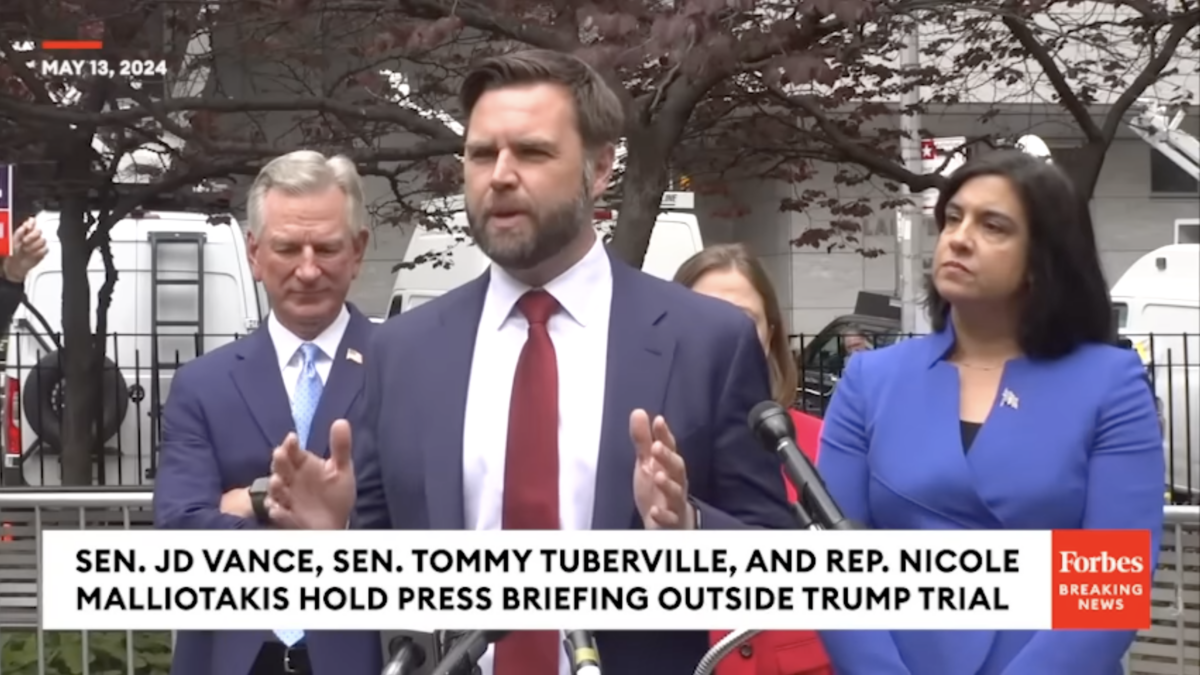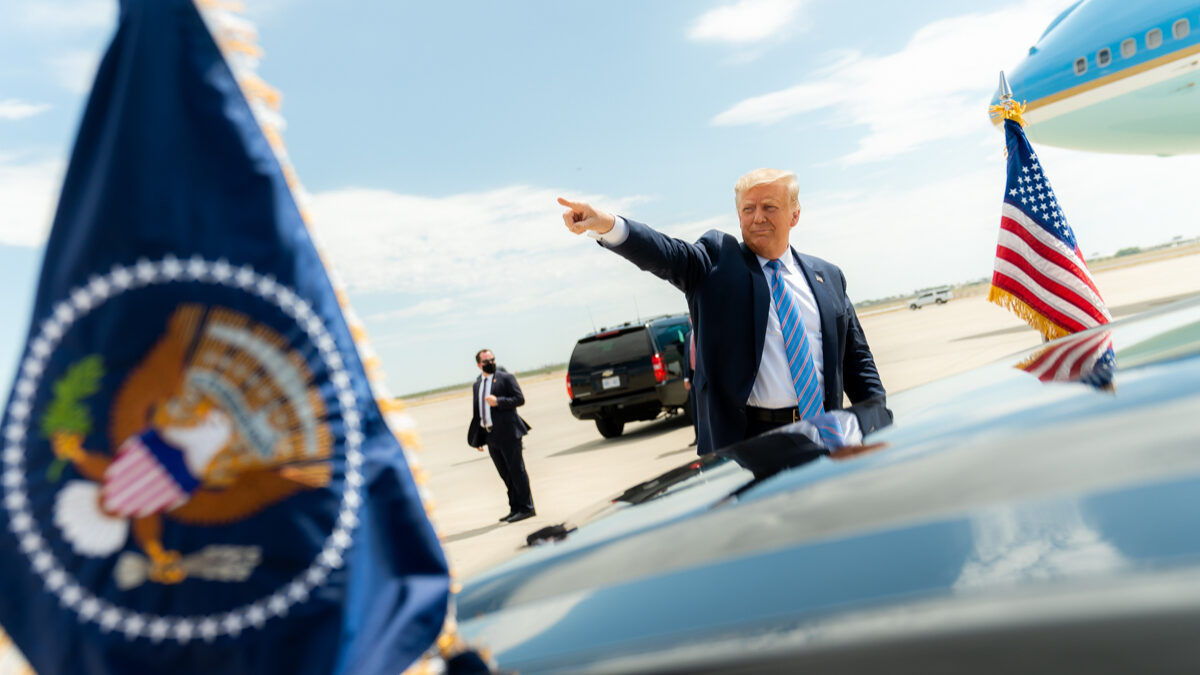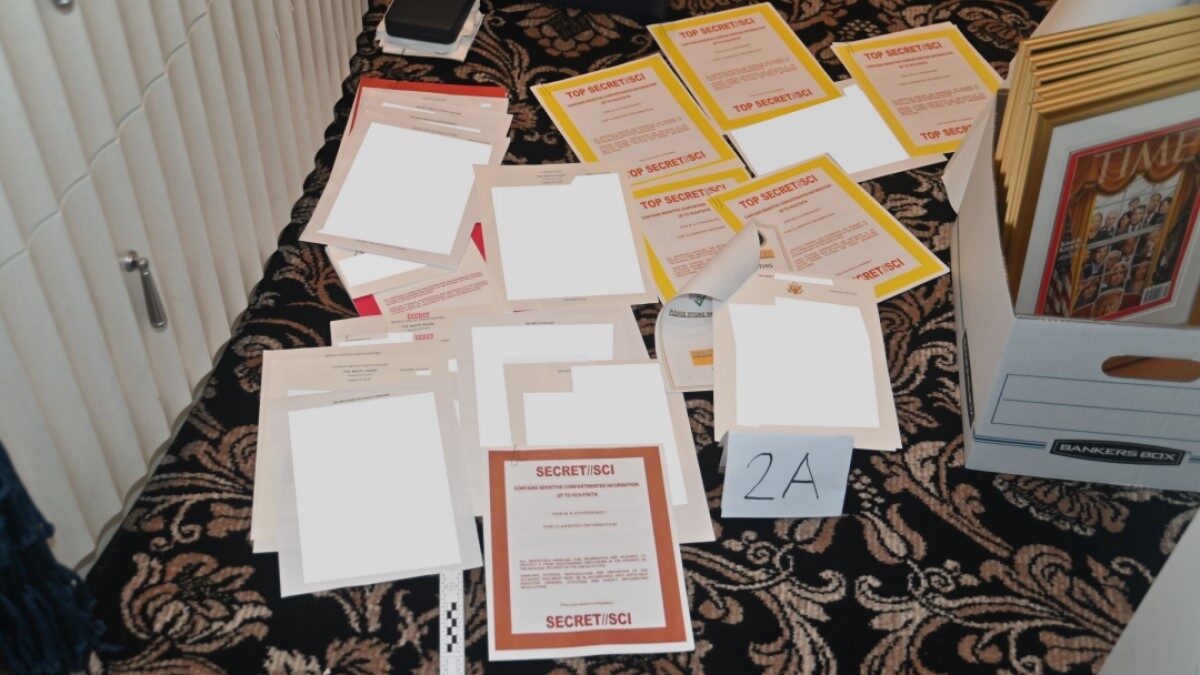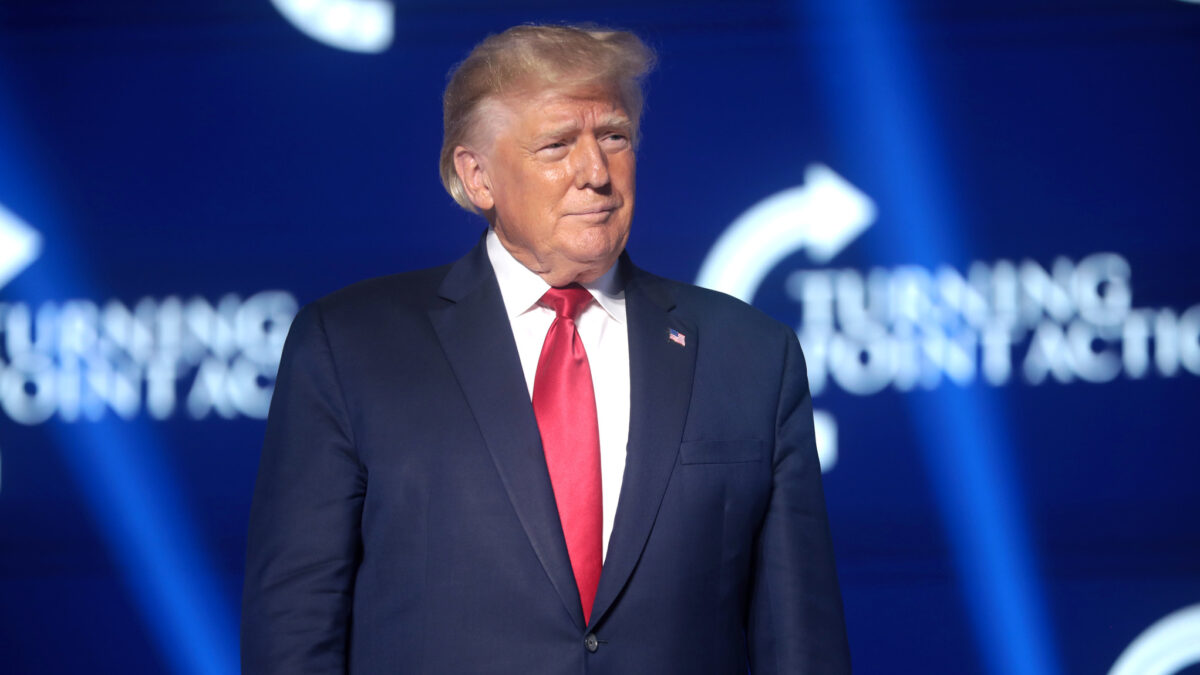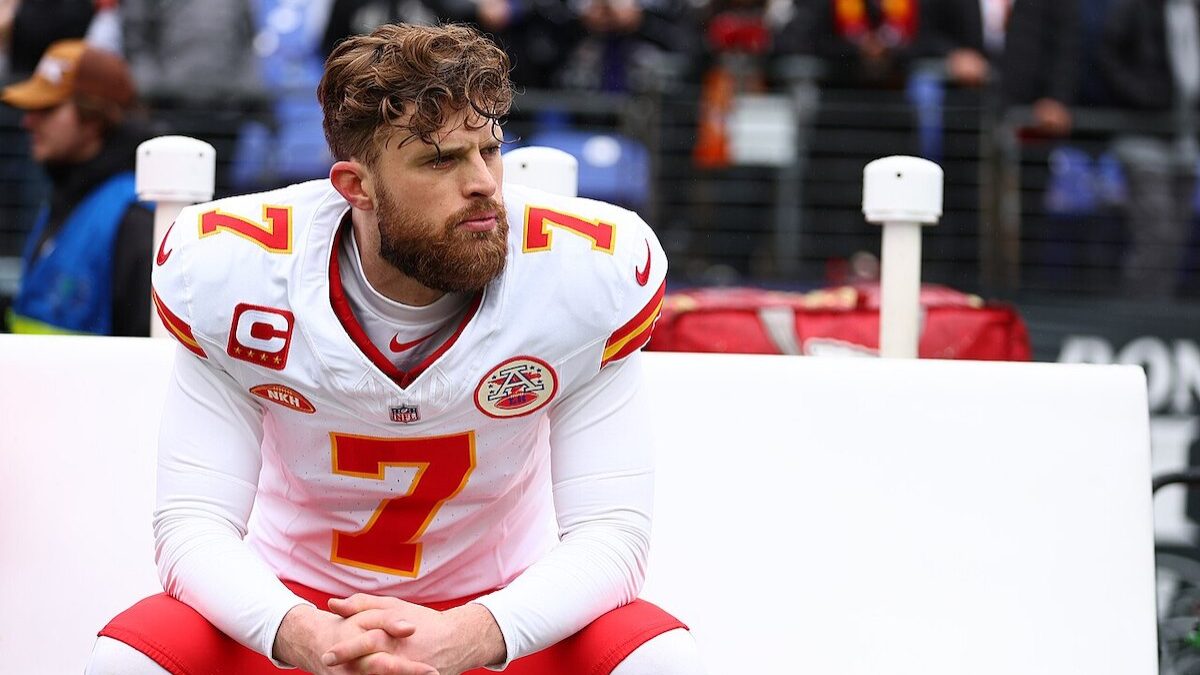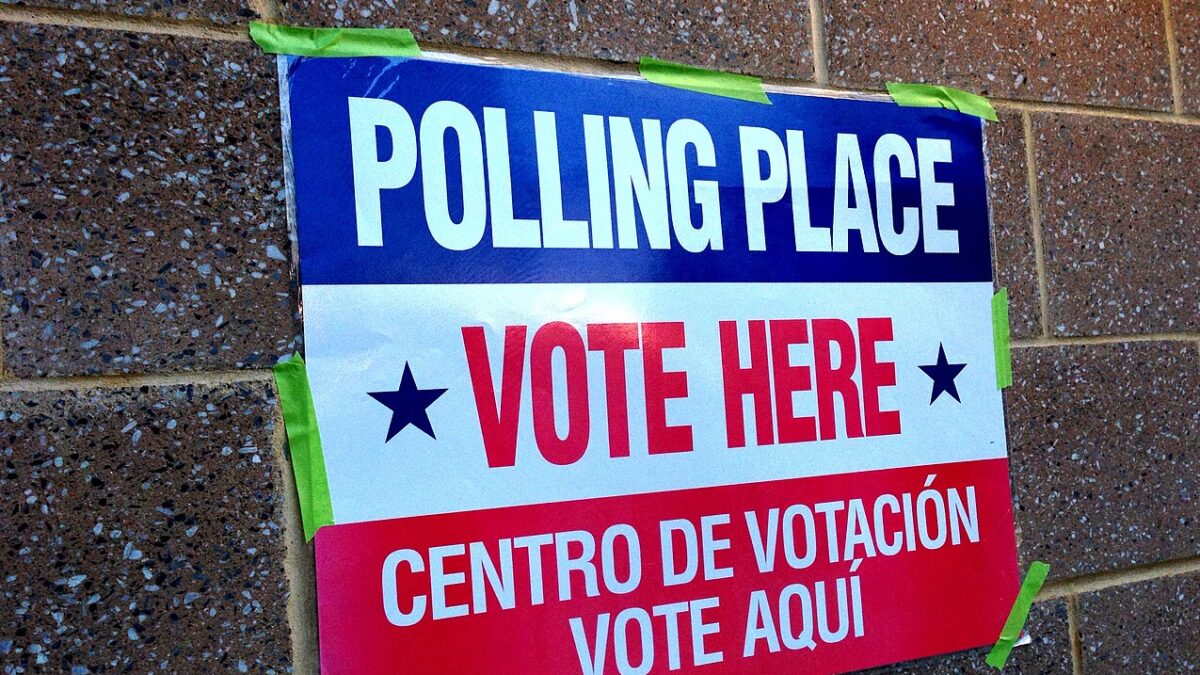A motion filed in the Fulton County “election interference” case against Donald Trump and 18 codefendants, also known as “The Fulton 19,” hasn’t garnered much attention but has the potential to upend the entire case.
Meet Harrison Floyd. He fought for his country as a Marine, interned at the Heritage Foundation, was a senior staff member on President Trump’s 2020 campaign, and led a nationwide effort known as “Black Voices for Trump.”
He is also one of the defendants indicted last year, along with President Trump, by Fulton County District Attorney Fani Willis. Floyd was charged with a violation of Georgia’s Racketeer Influenced and Corrupt Organizations Act (RICO) statute, “solicitation of false statements and writings,” and “influencing a witness,” stemming from contact he had with Fulton County temporary election worker Ruby Freeman.
In December of 2020, Floyd heard Freeman was seeking assistance. Unable to go to Atlanta himself, Floyd asked publicist Trevian Kutti, who at the time was working for Sen. David Purdue’s reelection campaign, to speak with Freeman.
Following allegations that Freeman had introduced suitcases of illegal ballots and committed other acts of election fraud, she became wary of strangers. So when Kutti and Garrison Douglas, director of communications for the Georgia Republican Party, came to her home, she called the Cobb County police and asked them to arrange a meeting.
The Georgia Record reports that on the 911 call, and in person with the police present, Freeman “asked for the meeting to see what help [Kutti] could provide to her, to clear her name, to report on the coverup by the GA SOS [Georgia Secretary of State] and FBI, and to blow the whistle on improper ballot scanning and improper use of USB Ports by Fulton County election employees that occurred in and after the 2020 elections.”
Floyd was then included in the meeting by phone, and about an hour-long conversation ensued in the presence of the police, still wearing bodycams.
The indictment alleges that Kutti was recruited by Floyd “for the purpose of attempting to contact Ruby Freeman,” which was allegedly “an overt act in furtherance of the conspiracy.” It also accuses Floyd of “solicitation of false statements and writings” and “influencing a witness” based on his contact with Freeman.
Floyd’s Indictment
When Floyd was later indicted, he flew to Atlanta from his current home in Maryland and surrendered himself on Aug. 24, 2023. He expected to bond out quickly, as had the other defendants. To his surprise, he was jailed for 24 hours until Fulton County Magistrate Judge Emily Richardson held a bond hearing. She deemed him a “flight risk” even though he had voluntarily turned himself in, denied him bond, and ordered him to be held in the Fulton County jail, which is known to be dangerous and bedbug-infested.
Following his confinement, a conservative uproar ensued, and a crowdfunding effort was launched, raising more than $360,000 thus far for Floyd’s legal defense. On Aug. 29, 2023, six days after his surrender, Judge Scott McAfee, who was assigned the case, set a bond of $100,000 as well as other conditions for his release. He was freed the next day.
Floyd’s attorney Chris Kachouroff is a reputable and experienced libertarian attorney, and he launched a vehement, studious, and thought-provoking defense of his client. One of his first and ongoing concerns is that Willis has thus far failed to disclose the false statement(s) Floyd allegedly asked Freeman to make. In motions to the court, Kachouroff has been trying to get Judge McAfee to compel the district attorney to disclose that information so his client can defend himself against her claim.
Dispute over Jurisdiction
Kachouroff recently did an interview with Cobb County Attorney Philip A. Holloway, who has been following the case closely and knows many of the people involved in it. In that interview, Kachouroff explained another major issue: In his view, and arguably that of the law, the proper jurisdiction for election-related violations lies with the state election board.
In reviewing the indictment, he discovered Willis had attempted to proactively justify her jurisdiction to bring the case, which led him to question that assertion. He described a letter Willis wrote to the court as he paraphrased Willis’ argument saying that “the rest of the state, the secretary of state, and the governor, they’re all compromised” and elaborated with, “I’m the only one left standing, that can investigate this.” After examining the whole issue more thoroughly, he discovered she may not have the jurisdiction she thought she had.
Kachouroff explained that he had filed a motion challenging Willis’ jurisdiction with Judge McAfee, but it was denied. The judge ruled that the district attorney’s office had “shared jurisdiction,” but he later granted Floyd’s motion for immediate review of that issue by the Georgia Court of Appeals.
As the interview continued, Holloway and Kachouroff reviewed his motion to appeal that issue and turned their focus to a subtle but important issue with McAfee’s position. They argued that part of the reason the state election board has sole jurisdiction is so they can decide where to refer a case for prosecution, which could be to the state’s attorney general’s office or one of Georgia’s 54 district attorneys.
Kachouroff’s central argument is that if district attorneys are free to bring a case independent of that election board process, nothing prevents multiple DAs from duplication or “fragmentation of investigative activities” as they try to bring, or decide not to bring, their own variants of what is essentially the same case.
Hollaway responded by arguing that the DAs are already fragmented, stating frankly, “We’ve got DAs across the state that would say that Fani Willis’ indictment of Harrison Floyd and the others is bullsh-t. They would say it in a heartbeat if they felt they could.”
Here’s where this gets very interesting: According to Kachouroff, if the court of appeals or the Georgia Supreme Court were to rule in Floyd’s favor, it would mean Willis indicted the defendants without proper jurisdiction. Not only would that cause her entire case to crumble like a house of cards, but such a ruling would also remove her immunity. This would leave her and Fulton County vulnerable to a multimillion-dollar lawsuit for violating the civil rights of each of the defendants.
Where Does the Case Go from Here?
Floyd remains unwavering in asserting his own innocence and does not believe he deserved the treatment he received. In a recent interview on “The Real Dana” YouTube Channel, Judge Joe Brown noted that Willis is often “out there complaining about how she gets treated so badly because she’s black, and she’s black in charge of the prosecution in Fulton County.”
He added, “And you’re the only black person that got caught up in this and you couldn’t get a bond. Oh, that’s interesting.”
Floyd responded by naming a number of black leaders in Atlanta, adding, “They just can’t seem to make things happen, and most importantly, keep black folks safe in the Fulton County jail,” referencing his own week-long confinement.
I empathize with Floyd and the kind of lawfare he is dealing with. On Christmas Eve in 2020, I was served with a federal lawsuit alleging I had violated Section 11 (b) of the Voting Rights Act by challenging voters with residency issues. That led to a three-year battle with Stacey Abrams’ Fair Fight organization and her notorious attorney Marc Elias. Around the same time Harrison was indicted, my case was being prepared for trial. We won that case in January, but his ordeal may still be in the beginning stages.
I asked Harrison how he feels about the current status of the case and, aside from his desire to prove his innocence, what he hopes will come out of it all. He first said he hopes his case brings even more focus on the deplorable conditions in the Fulton County jail, where 10 inmates died last year and three more this year.
He added, “There are black folks and low-income people of all races getting stuck in that hell hole without bond. They say you get a court-appointed lawyer, but for many of those people that just doesn’t happen.”
He then expressed his gratitude for the outpouring of support he has received from the public. He also spoke about a veteran-led organization he helped found called the “Statesmen Project,” which aims to combat issues negatively affecting our judicial system, including lawfare, by “advancing justice through strategic litigation.”

